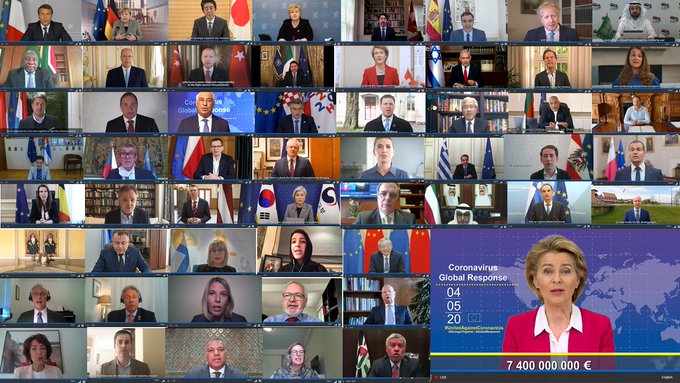Last Monday saw the online Global Coronavirus Response conference – organised and led by the European Commission President – at which civil, philanthropic and private sector organisations from around the world donated 7.4 billion euros to accelerate research and development work for COVID-19 testing, drugs and vaccines.
This initiative was in response to the World Health Organisation and other global health actors’ call for the global coronavirus crisis to be addressed. It included an important principle – namely, that any medicines, vaccines and other tools developed should be made available to everyone who needs them, at affordable prices, and without leaving anyone out.
This initiative is great news and we welcome it.
However, as other organisations have already warned, this brings up many questions about a number of important issues. For example, how will global access to any COVID-19 treatments, vaccines and tools that emerge from this research be ensured? How will global production and supply be ensured for all countries – without distinction and when they need it? Who will own the intellectual property for the treatments and vaccines? How will prices be set? By whom? How will open access to the knowledge generated under the research be ensured? What accountability and transparency mechanisms will be put in place?
Raising large sums of money is not enough. To ensure that drugs, vaccines and other tools reach everyone around the world, donor governments need to attach specific rules and conditions to the contributions they make and to any agreements with public and private actors who receive such funding, in order that any products developed are truly considered and treated as global public assets.
Agreements that give governments the ability to set the prices for these products. Fair and affordable prices, based on the actual costs of the research and the amount of public investment, and taking into account a reasonable profit margin for any research groups or companies that develop them.
This is the only way that national health systems in all countries – rich or poor – will be able to afford them and reach everyone who needs them, at no cost, with priority to the most vulnerable and those most at risk.
Under their terms and conditions, governments should impose agreements with any research groups, private companies or other R&D players that receive part of these public funds (which have gone mainly to multilateral bodies like CEPI and GAVI). Any vaccines, treatments or diagnostic tools that are developed should not be under exclusive licenses, to avoid monopolies and to make it easier for several producers to manufacture and distribute them to meet one of the great challenges of this pandemic: to produce sufficient quantities to supply the needs of all countries.
In addition, conditions should be attached so that any data obtained, knowledge generated and results from the different phases of the research are put into the public domain and openly shared with the scientific community. This will speed up other research and help reduce related costs and the final prices of future treatments and vaccines.
There is also, of course, a need for global, inclusive and transparent governance, with open doors and accountability systems so that the scope of actions is known, along with how and where public funds have been or will be invested, to monitor progress and understand which agreements have been reached and which actors are involved. Furthermore, this governance should include organisations from civil society.
The Global Coronavirus Response initiative is just getting started, and this round of fundraising is only the first phase. It is nevertheless great news. Last Monday we saw the leaders of countries including France, Japan, Canada, Italy and Spain – which put in 125 million euros, similar to the 100 million euros committed last year to the Global Fund to Fight AIDS, Tuberculosis and Malaria – speak openly about their commitment to R&D for drugs and vaccines and ensuring global access to them.
However, there are still many steps to be taken and many questions to be answered in order to see how that commitment will materialise, so that no one is left behind in the fight against this pandemic.












